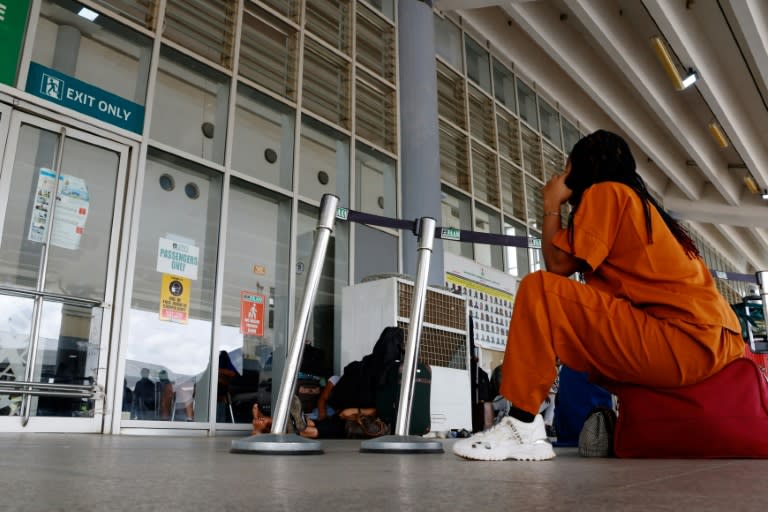Nigeria unions in talks on second day of strike

Nigerian union leaders on Tuesday held talks over a government offer to increase the minimum wage on the second day of a nationwide strike that has disrupted flights and closed down public offices.
The stoppage called by two main unions, the Nigeria Labour Congress (NLC) and Trade Union Congress (TUC), comes as Africa's most populous nation struggles with soaring inflation and an unstable naira currency.
On Monday, union workers shut down the national power grid, stalled domestic flights and closed most federal offices, ports, petrol stations and courts to demand the government increase its wage offer of 60,000 naira ($40) a month.
Late on Monday, the government said the unions had agreed to a week of negotiations to reach an agreement over the minimum wage.
Labour leaders were in discussions with their member unions over the offer on Tuesday.
Unions have been demanding 494,000 naira (around $330) as a monthly wage, up from the current level of 30,000 naira.
"Until we hear from our organs at our meeting scheduled for today 4th June, we are still on strike," the NLC said in a statement on X, formerly Twitter.
The government said late on Monday it was "committed to a National Minimum Wage that is higher than N60,000" and that the two sides would meet "every day for the next week" in order to reach a deal.
The unions are also protesting an electricity tariff hike, one of the economic reforms introduced by President Bola Ahmed Tinubu.
Since coming to office a year ago, Tinubu has ended a fuel subsidy and currency controls, leading to a tripling of petrol prices and a spike in living costs as the naira has slid against the dollar.
The government has asked Nigerians to give time for the reforms to work, saying they will draw more foreign investment, but the measures have hit spending power hard.
The second day of the strike was more mixed than Monday.
In Abuja, some ministry employees returned to work though most offices and the National Assembly building were still padlocked, AFP correspondents saw.
Aviation union members were gathered outside the shuttered entrance of the domestic airport in Lagos, the country's economic capital.
On Monday, local carriers Ibom Air, Air Peace and United Nigeria all reported disruptions or suspended flights.
But international flights were still operating on Tuesday, the spokesman of the Federal Airports Authority of Nigeria said.
Eight members of Nigeria's Super Eagles football squad, including winger Ademola Lookman, were stranded on Monday by flight disruptions and could not make a World Cup qualifier training session, a team spokesman said.
NLC is an umbrella of dozens of unions with tens of thousands of members, from civil servants and teachers to oil sector workers and transport employees.
bur-pma

 Yahoo News
Yahoo News 
